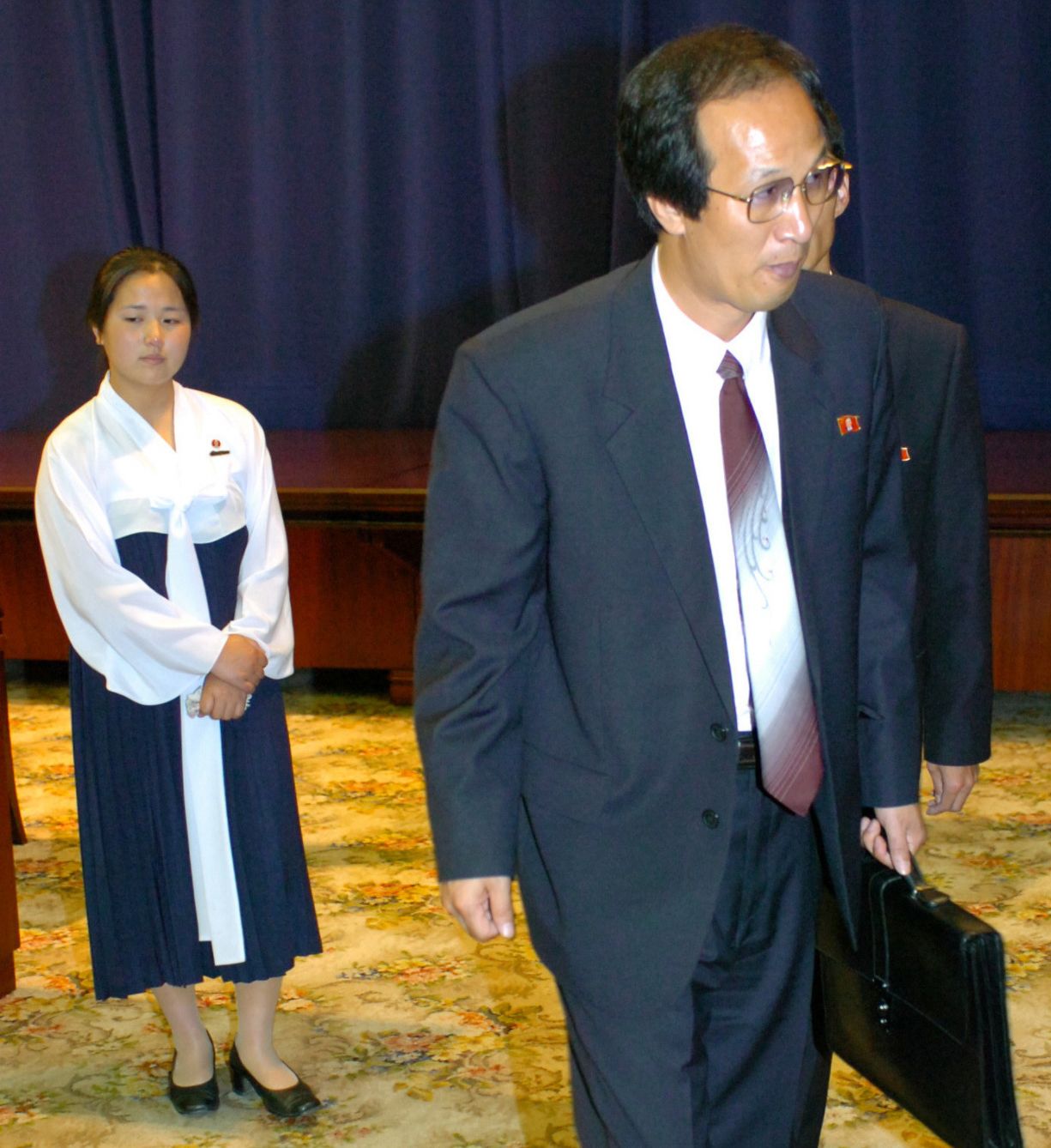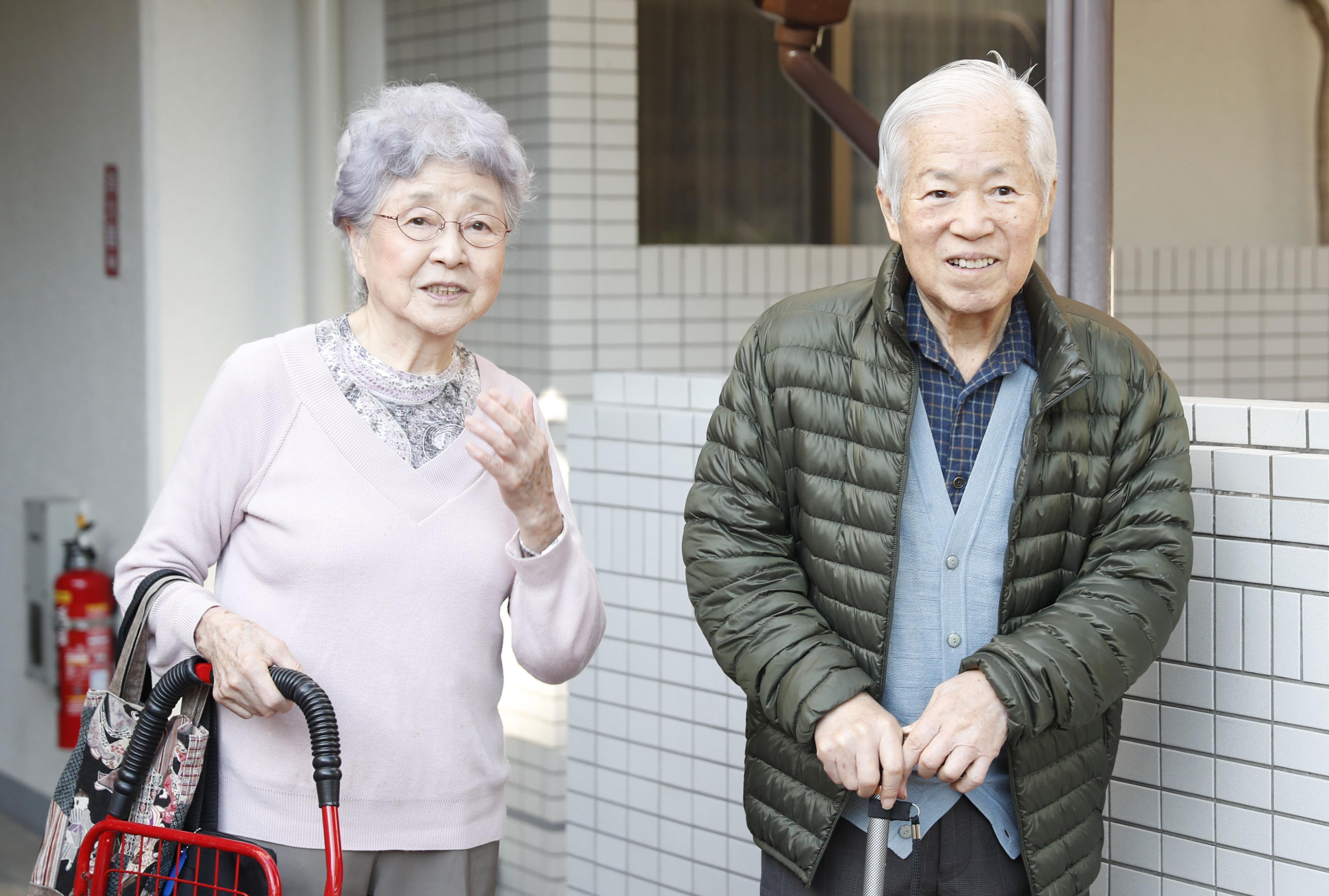Suffering and Hope
How faith helped Sakie Yokota survive her daughter's disappearance.
By Kiyoshi Mitsui
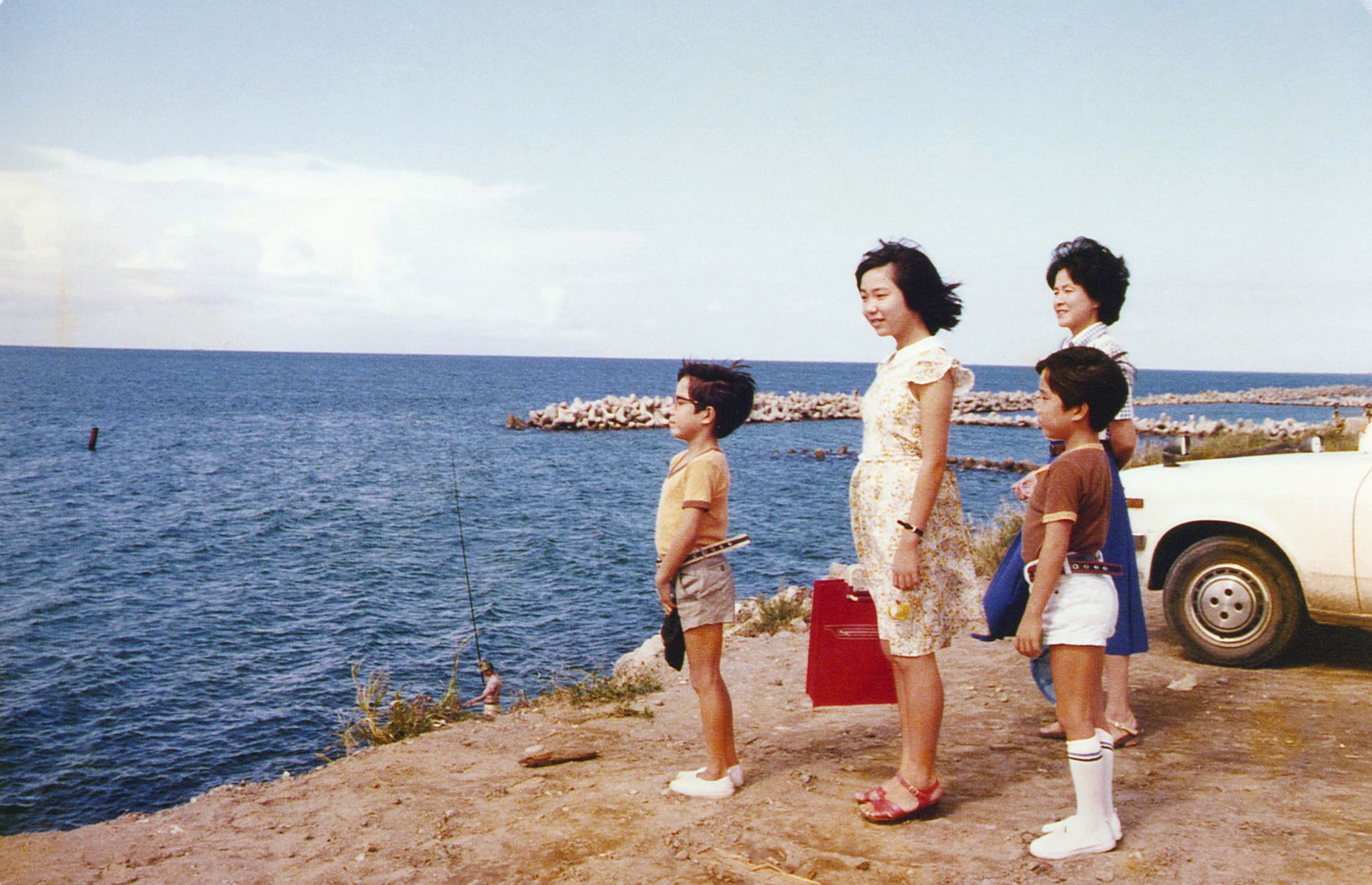
Megumi's disappearance
"I'm off now. See you later." -- Those turned out to be the last words Sakie heard her 13-year-old daughter Megumi say before she disappeared like a wisp of smoke on her way home from junior high school on Nov. 15, 1977. From that day on, life has been a never-ending struggle for Sakie, now 89 years old.
Twenty years later in 1997, suspicions that Megumi might have been abducted by North Korea came to light. Another five years passed and North Korea notified Japan that she had "died" without providing clear evidence..
Sakie then caught wind of information that Megumi's daughter and granddaughter live in North Korea. In 2014, she and her husband Shigeru were able to meet them in Mongolia. Sakie continues to believe that Megumi and other victims of North Korean abductions are "definitely alive."
This account of Sakie is based largely on a series of interviews with her. It attempts to elucidate what has kept her going through shifting emotions of sadness, surprise and blessedness while being at the mercy of North Korea and its political whims.
The Yokotas were living in Niigata on the Sea of Japan coast when Megumi suddenly disappeared. "Where are you, Megumi?" They searched for her for years, along with police, but no clues were found.
Crushed by a sense of guilt, Sakie said she "thought about suicide many times." It was the Bible that gave her the emotional support she needed in her days of grief.
"And he said, 'Naked I came from my mother's womb, and naked shall I return. The Lord gave, and the Lord has taken away; blessed be the name of the Lord.'" (Job 1:21)
This is the first verse from the Bible that captivated Sakie. She felt the profoundness of the destiny determined by God, who transcends human knowledge and encompasses all the blessedness, sorrows and suffering in the world. For Sakie, Job, who is depicted in the Old Testament as a faithful and "righteous man," resonated with her as she faced many hardships.
Abduction by North Korea floated as possibility
Close to 20 years had passed since the disappearance of Megumi, a cheerful girl who loved to sing, when the Yokotas received "hard-to-believe" information. It was at the end of January 1997. "Accounts" given by a North Korean agent-turned-defector to South Korea gave rise to the possibility that she had been abducted to North Korea.
In March of that year, the Association of the Families of Victims Kidnapped by North Korea was formed, with Shigeru as the inaugural leader. Thus began a decades-long fight to bring back the abductees.
"I do not occupy myself with things too great and too marvelous for me. But I have calmed and quieted my soul," (Psalm 131:1-2)
Sakie felt caught in the vortex of international conspiracy. Over and over, she traced the words uttered by David, the king of ancient Israel, as he prayed to God.
The king's awareness of his own sinfulness and limitations, as well as his willingness to surrender to God, tugged at Sakie's heartstrings. His words released her from an unsettled state of mind and gave her the peace and courage needed to wait for God's grace.
"Death" notice from North Korea
On Sept. 17, 2002, nearly 25 years after Megumi's disappearance, a historic first-ever summit meeting took place between Japanese and North Korean leaders. Then North Korean leader Kim Jong Il admitted Japanese nationals had been abducted and apologized to then Japanese Prime Minister Junichiro Koizumi.
Kim revealed that five of the abductees were alive but claimed, without clear evidence, that eight including Megumi were "dead." Despite the shocking news, Sakie kept up her hopes of being reunited with her daughter, saying, "I believe she is alive."
"For the sake of Christ, then, I am content with weaknesses, insults, hardships, persecutions, and calamities. For when I am weak, then I am strong." (2 Corinthians 12:10)
Sakie saw a parallel between her feelings and the words of Paul the Apostle, who persecuted Christians but later converted and worked to spread Christianity before being martyred. Why does a "weak" homemaker like her have to go through such a hardship? She thought of the pain her daughter must have been feeling in a neighboring country. "When I am weak, I am strong."
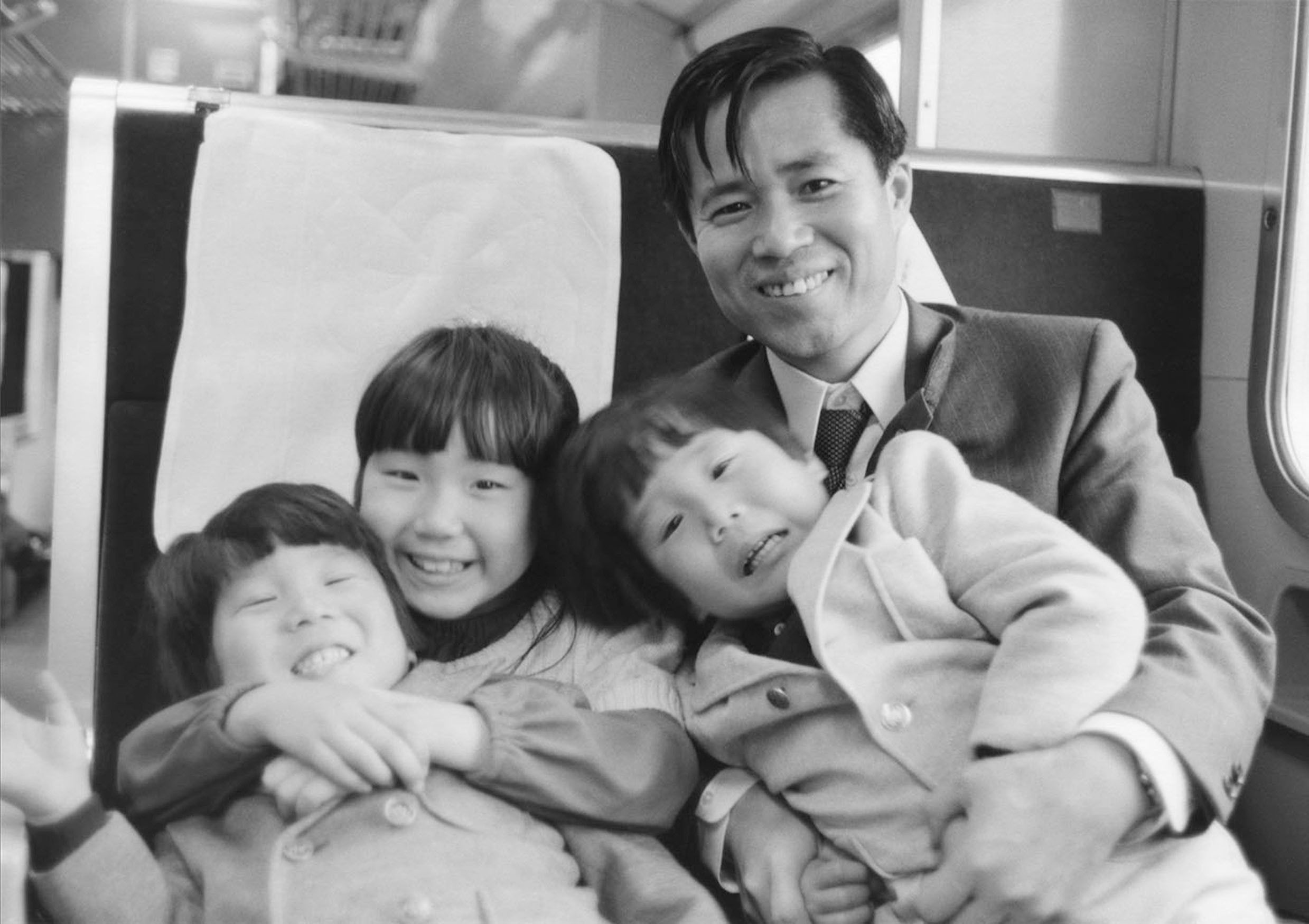

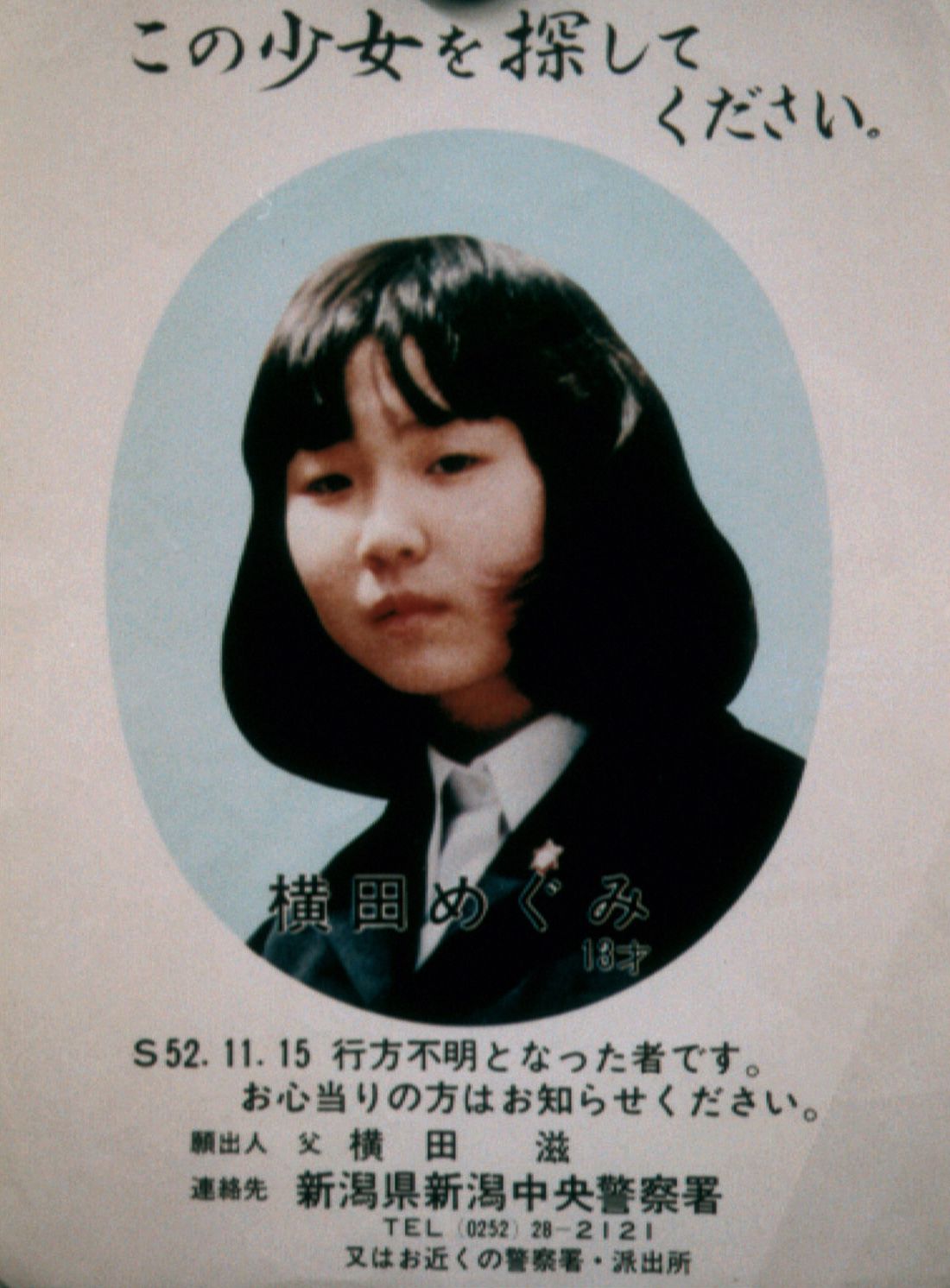
Granddaughter who resembles Megumi
The first-ever summit meeting between Japan and North Korea in Pyongyang in September 2002 left Sakie with feelings of both disappointment and surprise.
Sakie recalls the day as being one that "pushed me off a cliff" because, despite hoping to be reunited with Megumi, she was told her daughter had died. But the distraught couple was also informed of the unimaginable: They have a granddaughter.
Kim Eun Gyong, who bore a close resemblance to Megumi, was making a plea in Pyongyang. "I want to see my granddad and grandma."
"Fear not, for I am with you; Be not dismayed, for I am your God." (Isaiah 41:10)
The Yokotas were caught in the political maelstrom in which the two countries butted heads over the abduction issue. The passage from Isaiah, an ancient Israeli prophet, brought Sakie a measure of peace. "Fear not." "Be not dismayed." She recited it over and over in silence.
Cruel "fake remains" of Megumi
In May 2004, around two years after North Korea notified Japan that Megumi was "dead," Koizumi flew to Pyongyang for a second time. Kim promised then to re-investigate the whereabouts of the abductees.
Sakie hoped for some progress. But in November that year, North Korea handed to Japan what it says were Megumi's "remains." A subsequent forensic analysis concluded that they were of a different person.
"So cruel," Sakie said, unable to calm her anger.
Meanwhile, five abduction victims who returned to Japan in October 2002 began providing their accounts of Megumi and her life in North Korea.
"Search me, O God, and know my heart! Try me and know my thoughts!" (Psalm 139:23)
"May God know my thoughts." Her heart on the verge of breaking, Sakie prayed many times. That helped her maintain peace of mind and ensured she remained steadfast in her belief that she would eventually be reunited with her daughter.
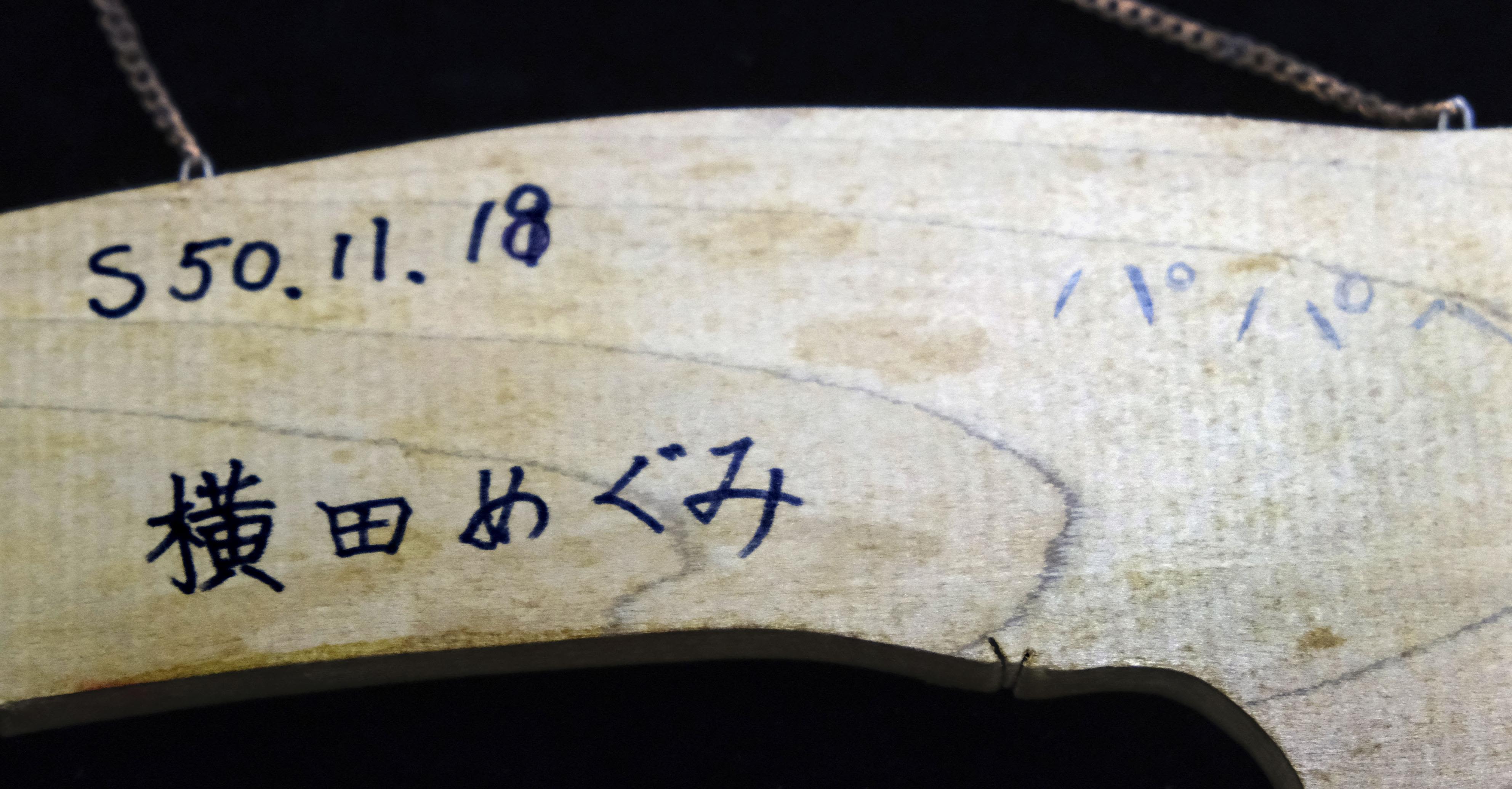

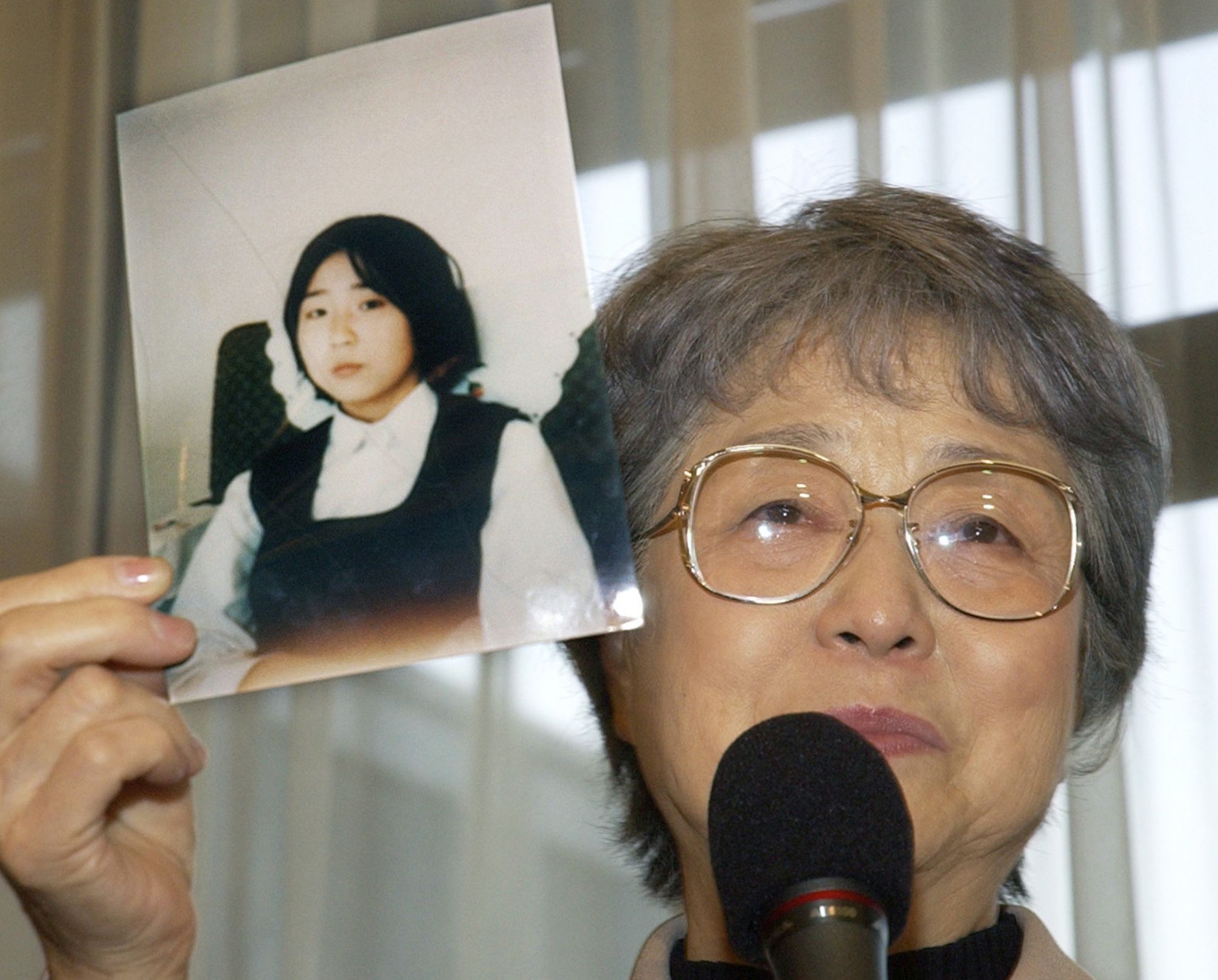
Kim Eun Gyong, the daughter who does not doubt her mother's death
Twelve years after the Yokotas learned that they have a grandchild, their secret meeting with her and her family took place in Mongolia. However, the meeting had a tense moment between Kim Eun Gyong, who did not doubt her mother's “death” and Sakie, who believes in her being still alive.
What can only be described as an improbable trip to witness Megumi's "living proof" turned out to be a troubling mix of blessedness, conflict and sadness.
"Knowing that suffering produces endurance, and endurance produces character, and character produces hope, and hope does not put us to shame, because God's love has been poured into our hearts through the Holy Spirit who has been given to us." (Romans 5:3–5)
Through the meeting, Sakie also gained a firsthand glimpse into North Korea's divisions and how it is closed to the outside world. She wanted nothing more than a chance to see Megumi again. "Suffering leads to hope." Paul's words touched Sakie's heart.
Passing of Megumi's father and unmet hopes
Shigeru Yokota died in June 2020 at age 87 without being able to be reunited with Megumi, the daughter he loved. He, along with Sakie, had long led the efforts to rescue abductees in the hope that they would all be returned.
It was Shigeru's birthday in 1977 that his whole family, including 13-year-old Megumi, had last celebrated together because she was abducted the next day.
"Come to me, all you who labor and are heavy laden, and I will give you rest." (Matthew 11:28)
Shigeru died peacefully with Sakie at his side at a hospital in Kawasaki, just outside Tokyo.
"You are going to heaven. I'll be with you later, so please wait for me there," Sakie said to him as his pulse faded to a level that no longer registered on the monitor. Left at his bedside was a photo he had taken decades earlier. It showed his dear daughter when she was a girl.
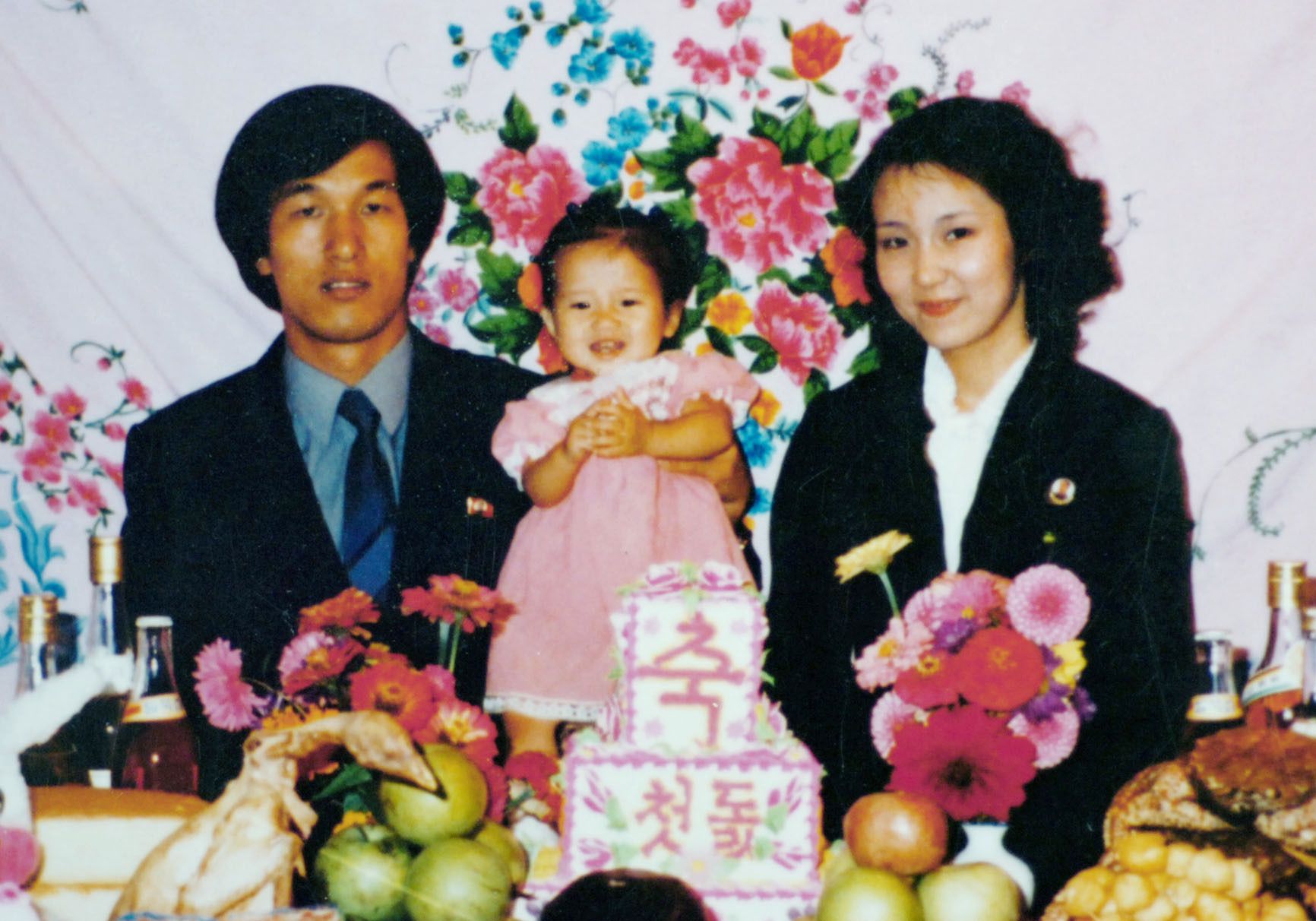

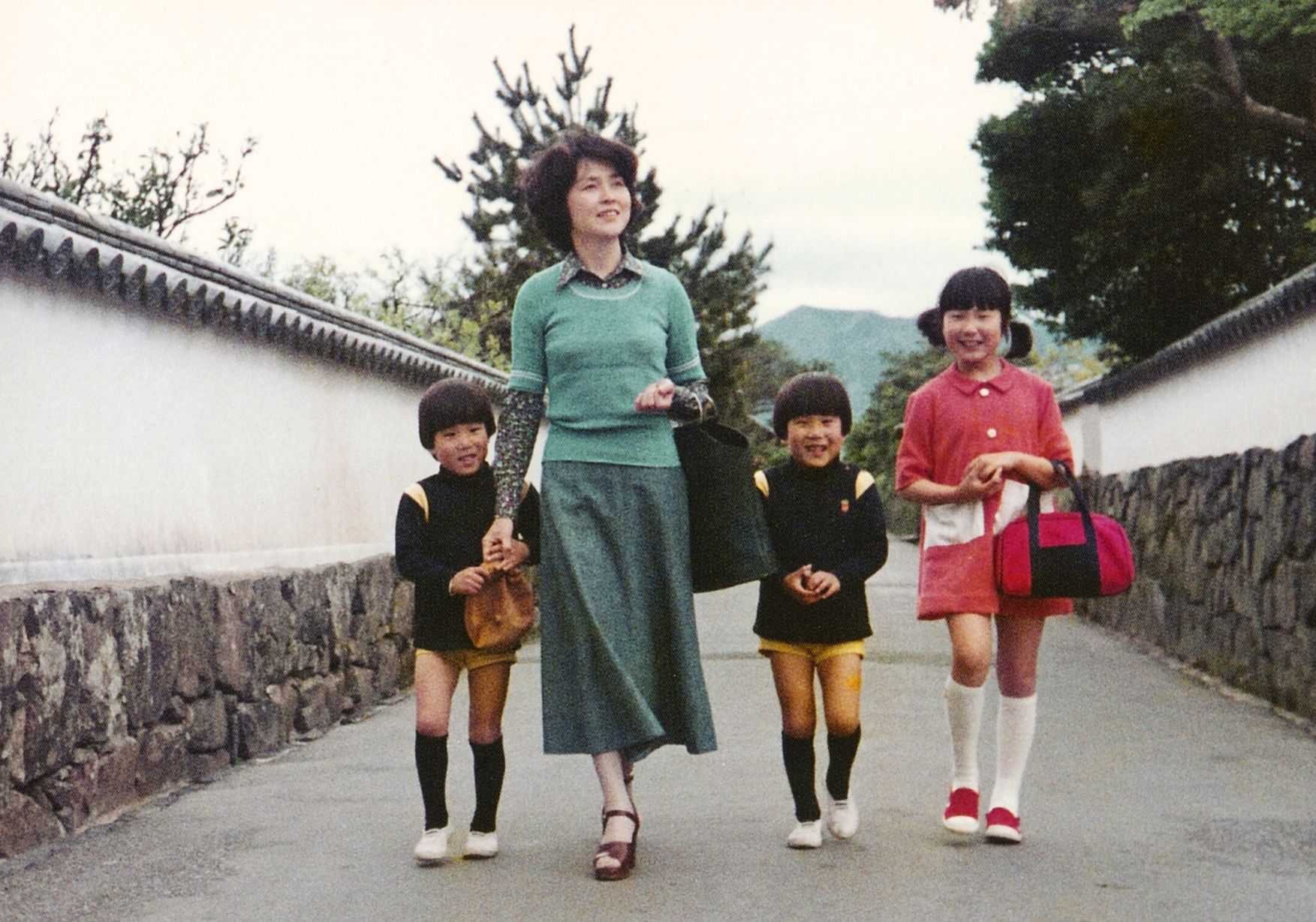
Until the day all abductees can return home after reconciliation between the two countries
Sakie collapsed at her home in February 2023. The episode made her realize her mortality for the first time. "Let me live another two years and allow me to see Megumi," she prayed.
Kim Young Nam and Kim Eun Gyong, daughter of Megumi Yokota, after a press conference in Pyongyang, July 6, 2006.
Kim Young Nam and Kim Eun Gyong, daughter of Megumi Yokota, after a press conference in Pyongyang, July 6, 2006.
Sakie believes that her daughter and other abduction victims will soon be reunited with their families, all smiling. She looks forward to the day there is reconciliation between Japan and its "distant" neighbor with which it has no diplomatic relations, so the two peoples can travel freely between their nations.
Sakie also tells Megumi every day through the Lord. "Don't lose hope despite our suffering." She has found hope in her struggle.
Sakie and Shigeru Yokota (right) in front of his apartment on Nov.9,2017.
Sakie and Shigeru Yokota (right) in front of his apartment on Nov.9,2017.
(Bible verses taken from English Standard Version)
"I want to see her while I'm still alive"
Megumi Yokota turns 60 on Oct.5,2024.
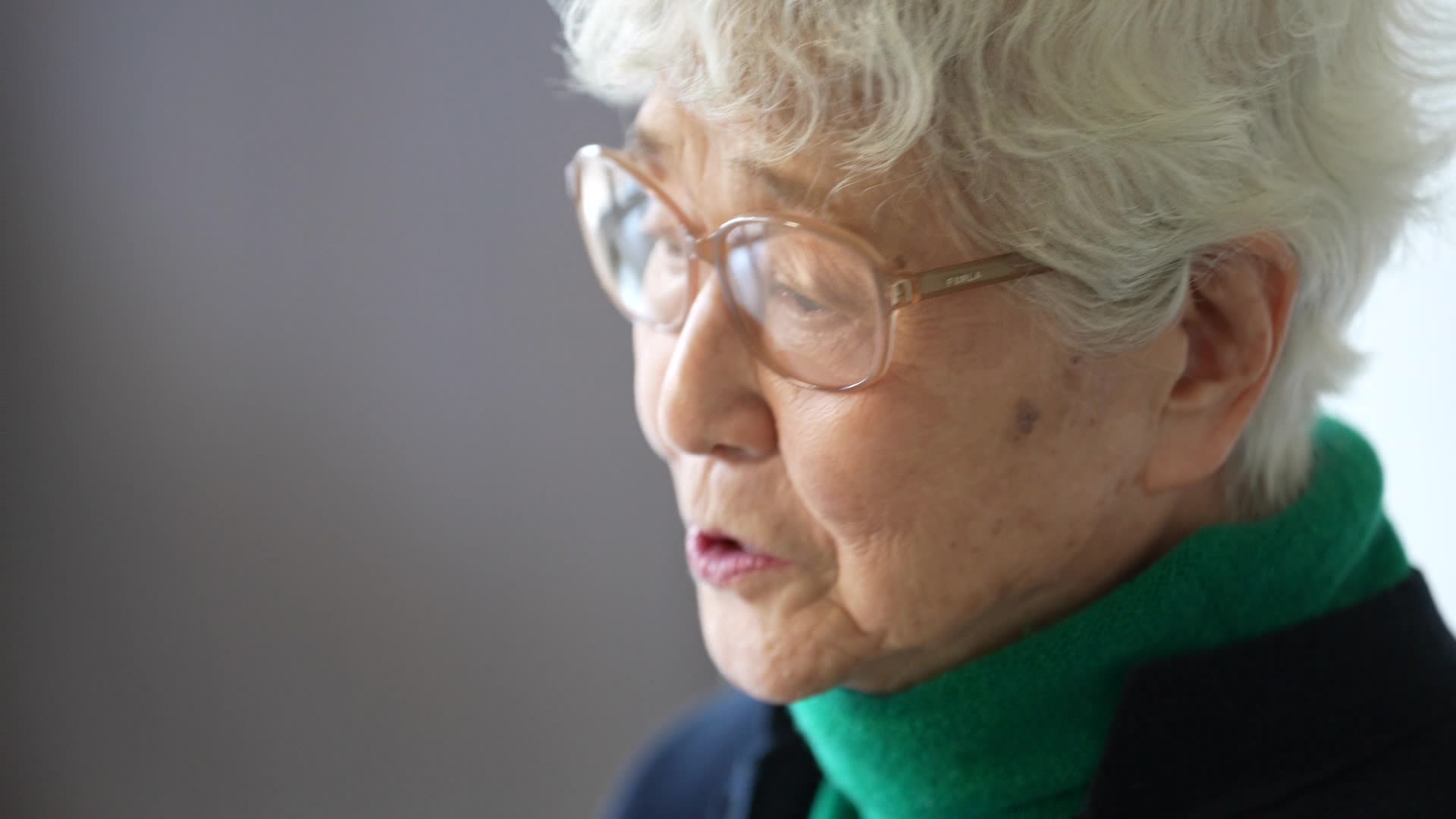
Text
Kiyoshi Mitsui
Translation
Junko Horiuchi
Cover photo : Shigeru Yokota(Megumi's father)
Photo : Kyodo News(2006,2017)
Video : Fumine Tsutabayashi
Supported by
Asagao no Kai
The Company uses Google Analytics, an access analysis tool provided by Google. Google Analytics uses cookies to track use of the Service. (Client ID / IP address / Viewing page URL / Referrer / Device type / Operating system / Browser type / Language /Screen resolution) Users can prevent Google Analytics, as used by the Company, from tracking their use of the Service by downloading and installing the Google Analytics opt-out add-on provided by Google, and changing the add-on settings on their browser. (https://tools.google.com/dlpage/gaoptout) For more information about how Google handles collected data: Google Analytics Terms of Service (https://policies.google.com/technologies/cookies?hl=en#types-of-cookies) Google Privacy & Terms(https://policies.google.com/privacy)
© Kyodo News. All Rights Reserved. No reproduction or republication without written permission.


